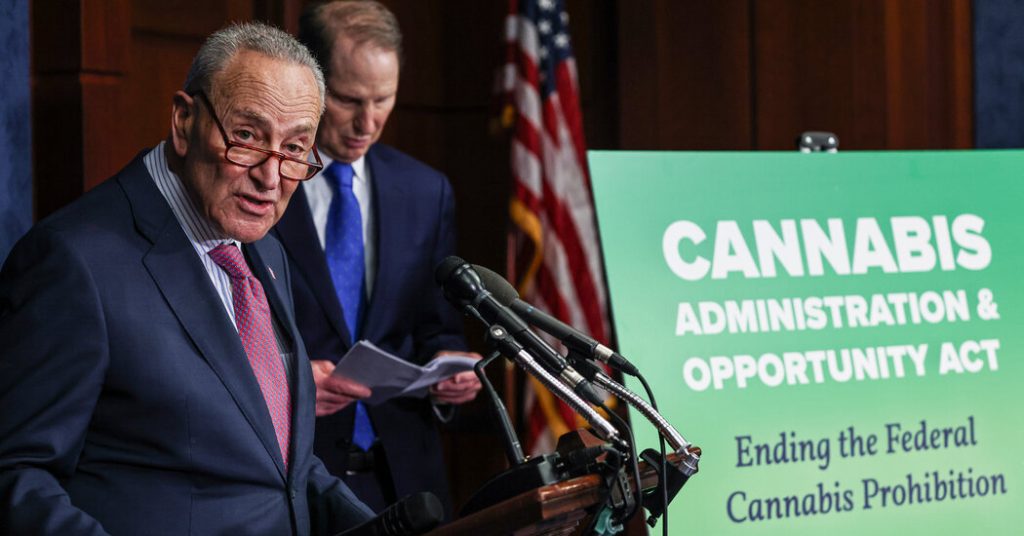Senate Democrats have reintroduced legislation to legalize cannabis on the federal level, which would remove marijuana from the controlled substances list, regulate the industry, and focus on expunging certain marijuana-related offenses, researching health impacts, and addressing the effects of the war on drugs. Led by Senators Chuck Schumer, Ron Wyden, and Cory Booker, the bill has broad public support but faces likely obstacles in Congress this election year due to Republican control of the House and divisions within the party. Despite this, the issue of cannabis legalization is popular across the country and among both Democrats and Republicans, indicating its potential political value.
While the Biden administration recently recommended easing restrictions on cannabis, the legislation proposed by Senate Democrats goes beyond this by calling for full federal legalization. Advocates argue that the bill would address issues related to social justice, criminal records, and the commercialization of the marijuana industry. However, opponents such as Kevin Sabet raise concerns about the potential negative impacts of legalization, likening it to the tobacco industry’s harmful effects. The bill represents a significant step forward in the growing support for cannabis legalization, with 88 percent of Americans in favor of legalizing marijuana for medical or recreational use, according to a recent Pew survey.
Despite the political challenges facing the bill in Congress, advocates continue to push for cannabis legalization as a key issue that resonates with voters. The issue of marijuana policy reform has gained momentum, with many states legalizing marijuana for both medical and recreational purposes in recent years. Advocates believe that embracing full legalization could be a strategic move for President Biden, potentially appealing to young voters and helping to secure victory in the upcoming elections. The Biden administration’s recent shift on marijuana policy reflects broader changes in public opinion and renewed efforts to address racial disparities in the justice system related to drug offenses.
In addition to the comprehensive legislation introduced by Senate Democrats, Congress is also considering more incremental bills to ease restrictions on marijuana, such as allowing legal cannabis businesses to access financial services. While some of these bills have bipartisan support, the overall outlook for cannabis reform during this Congress remains uncertain due to opposition from Republicans. Despite the challenges, advocates of legalization emphasize the importance of continuing to push for reform and highlight the political potency of the issue in mobilizing support from voters. As the debate over cannabis policy reform continues, the future of federal legalization remains a key issue for lawmakers and advocates alike.














